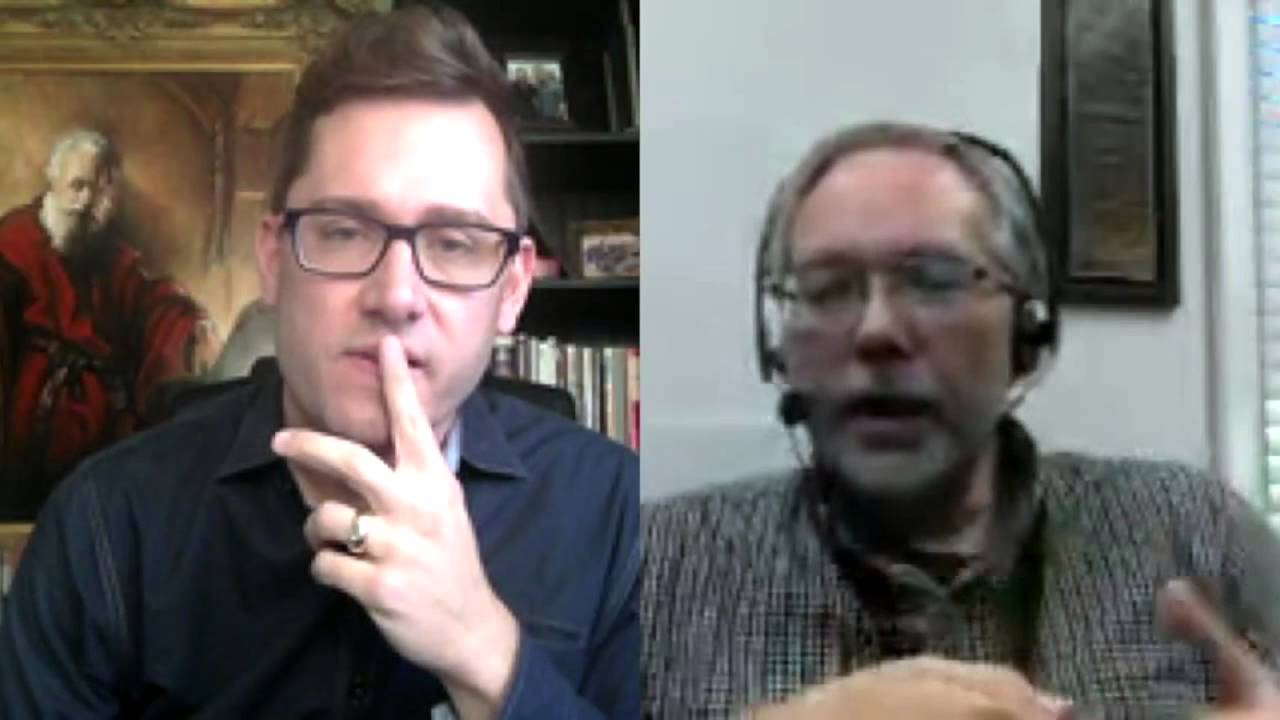Who is Dr. Michael Heiser anyway?
- Scholar – taught in 7 or more collegiate and university settings
- Writer – Many articles and several books, one of which we are talking about today.
- Historian – most of your teaching and study has dealt with biblical history.
- Linguist – knows the semantic languages very well, part of your Doctoral work. What is a linguist?
- “Scholar in Residence” at Logos.
you can read his bio and more about his experience here.
We are not scholars and this is not a classroom – but Heiser believe that the Scholars should serve the public by appearing on blogs like this one. In this interview, he explains how scholars should spend 1-2 hours a week just serving the general public. It is important the rest of us listen up!
Michael has dedicated a large portion of his work to studying and addressing the supernatural – UFOs and even science fiction (or as he calls it, cinematic theology).
Why are we doing this interview?
Dr. Hesier has a new book that has recently released called “Supernatural: What the Bible Teaches about the Unseen Word – and why it matters”. In this interview, we are addressing the main premise of the book, which is the importance of understanding the hard to reach passages of the Bible and applying them to our lives well.
Frankly I think Dr. Heiser has done something amazing here that most of us could not do—he took something scholarly, theologically deep and hard to understand and made it applicable, accessible and engaging.
This book is also available on Logos.
I love this book!
- Love the format of your book – 16 chapters, all right to the point.
- Great biblical theology throughout.
- It took his more scholarly work, “The Unseen Realm” but is now accessible and a riveting read.
- He always coming back to Christ in each chapter.
- I love (and need) the “why this matters” portion of each chapter.
- He deals with angelology or demonology in a way that is not always easy to find.
I asked him in the interview, “Why do you think most pastors and churches avoid taking about some of the passages you address in the book?” He answers this well and gives some good calls to action for all of us – including “don’t be lazy on the hard stuff” when doing Bible study. He also believes that our theological bias sometimes keep us from seek what the Bible is really teaching, is that correct?
We talked about Gnosticism
Colossians 2:8 says, “See to it that no one takes you captive by philosophy and empty deceit, according to human tradition, according to the elemental spirits of the world, and not according to Christ.”
We spoke about the balance of personal experience and biblical truth in the interview.
Dr. Heiser said in his book, “Every congregation, no matter how small or unknown, is on the front lines of spiritual warfare.”
One of the things he talked about in this book in several places, but toward the end especially, is knowing our identity in Christ. This is vital for any believer, but especially for the millennials and the age of those who listen to this podcast. Speak to us about why this important in light of understanding and thinking about the supernatural.
Heiser gives two great words to us:
- A word of caution: “We can turn Christ-likeness into a task we must perform lest God be angry with us, but that’s bad theology. It turns grace into duty.”
- The word of encouragement: “or we can be grateful that one day we will be what God is thrilled to make us– what he predestined us to be– and live in such a way that people enslaved to dark powers will want to join us in gods family. One perspective looks inward the other looks heavenward.”
In the interview Dr. Heiser gives practical application for knowing our worth in Christ and engaging in that so that we can have impact on the world around us.







![Where is God when Discouragement Sets In? [Sermon]](https://joshweidmann.com/wp-content/uploads/2022/06/paola-chaaya-eAkjzXCU0p0-unsplash-180x135.jpg)

![How to Help Kids with Anxiety [video]](https://joshweidmann.com/wp-content/uploads/2020/07/mladen-borisov-RzbUUaP2JXY-unsplash-180x135.jpg)




[…] Josh Weidmann had the chance to interview Dr. Heiser and came away extremely impressed with the material: […]